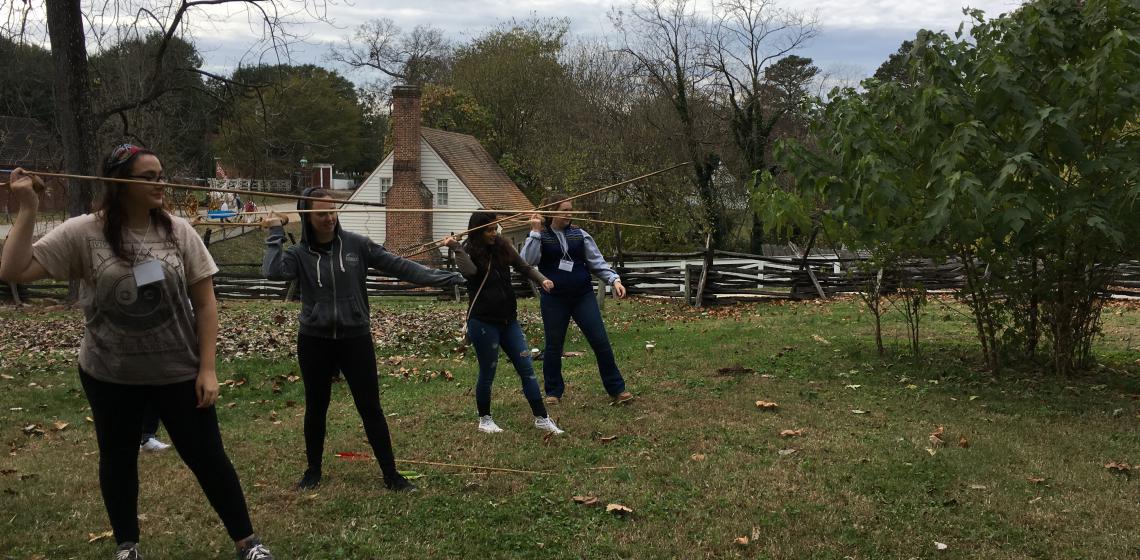
Coastal Carolina University offers baccalaureate degrees in 73 major fields of study. Among CCU's graduate-level programs are 25 master's degrees, two educational specialist degrees, and two doctoral programs. The University comprises 115 main buildings on 621 acres, including the Coastal Science Center and the Burroughs & Chapin Center for Marine and Wetland Studies.
Archaeology at CCU
The Department of Anthropology and Geography at Coastal Carolina University brings together diverse faculty to study the intersections between cultural and physical worlds. We work in archaeology, Geographic Information Systems, geography, cultural anthropology, museums, and environmental science. Our research takes us into the field, in the South Carolina Lowcountry and worldwide, where we examine lives, lifeways, and environments of the past and present. Our strong archaeological focus fosters interdisciplinary research and inquiry into the lives and lifeways of historic and prehistoric people. Focused on the Lowcountry of South Carolina and its unique heritage, our work also incorporates a global perspective, with faculty who work locally and internationally. We offer a range of courses, from introductory cultural anthropology, human evolution, and archaeology classes, to upper-level field and laboratory courses, GIS and geospatial technology classes, regional seminars, and training in Cultural Resource Management laws and practice.
Experimental Archaeology in Course(s)
Advanced Archaeological Methods (ANTH 410)
This course will provide an overview of the methods used by practicing archaeologists in the field and the laboratory. Discussions will cover theoretical and methodological underpinnings of the practice of archaeology, and will explore some of the most recent, cutting-edge techniques and technologies used today. Finally, we will discuss how our data and analysis inform our understanding and interpretation of the past.
Archaeological Records (ANTH 411) Archaeological records are all of the forms of data that make up the archaeological record, the material remains of past human activities. These include artifacts, ecofacts, and features. For some time periods and places, archaeological records also include documents, oral histories and oral traditions. This course involves the recording, analysis, interpretation, and reporting of archaeological data, including the preparation of technical documentation resulting from archaeological fieldwork. Archaeological Records covers a broad range of topics and activities fundamental to modern anthropological archaeology, beginning with the processing and cataloging of artifact assemblages. Consequently, a major component of this course consists of archaeological laboratory methods and techniques. Other topics include the preparation and management of technical records. These include survey and excavation forms, laboratory and field notes, state site files, regional and site maps, and the tabulation of archaeological data. Archaeological Records is organized as a laboratory course emphasizing student participation, independent study and instruction, and student-teacher interaction. Students should be self-motivated and eager to participate in the compilation, management, and interpretation of archaeological records.
